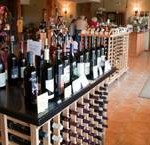Friday, April 17:
I will be away starting Saturday April 18 through the 25th. I am sending this notice in anticipation of activity next week in my absence, but please recognize that it is made based on a fairly long-range prediction.
We have seen no green tissue yet in South Burlington on any cultivars, and most are at early/just barely silver tip. Degree day accumulation since January 1, base 43 F is just about 47, and green tip is expected at about 100. Warmer sites than South Burlington have little more accumulated degree days, including Dummerston (50) and Shoreham (54). Other sites are at or below this level generally. Daily accumulations are in the 5-10 range when temperatures range from lows in the 30s to highs in the 60s. This is all estimations, guesses, and (informed) conjecture, but the point is that there is little to no green tissue out there now, and I don’t expect much development over the weekend, although the warmest sites may see some green tissue by Monday.
Next week we’re expecting two days (Monday & Tuesday) of rain followed by three days of showers, all with highs in the 50s and lows in the upper 30s and low 40s. Bud stages will advance slowly, and although scab ascospore maturity is likely very low to zero as of today, the fungus matures just a little faster than your trees so that when green tissue emerges, mature inoculum may be present in the orchard.
I recommend that growers in the Champlain and Connecticut Valleys use any time this weekend or between rains next week to get a copper fungicide on for management of fire blight, which will also buy you a week or so of time before scab season really hits. If you have time, go slow and add your spring oil treatment to thoroughly wet the canopy at dilute-2x concentration. If green tissue emerges by mid-late next week and copper coverage was questionable, nonexistent, or washed off from 1″ or more of rain since application, and you had any scab last year (or didn’t conduct a thorough evaluation in fall to assess), you may want to follow up with a kickback fungicide after the rains stop. Vangard and Scala are recommended particularly for the cool weather that is expected next week.
Anything else I offer is pure speculation based on very extended weather forecasts. Keep your eye on NEWA in the coming weeks (I mean every morning), there are a few new stations that have added in recent years. If you need to extrapolate very far for a station, and that includes on host site farms with varied topography, remember that NEWA is just one tool to help you in your pest management decisions, but to also use your experience and to trust observation made on your own farms.
I’ll make another plug for the 2015 New England Tree Fruit Management Guide, which has the specific answers an any materials I have suggested or alluded to.
Other activities next week: if your site is prepped, it looks like good timing to plant trees. If anyone is planting cider apple trees, please let me know what you have and how you have planted them, and I may also be able to visit when I get back. We need to set the stage for good cider apple research now so that it may pay off down the road in good, scientifically-sound research results.
Thanks. Remember, I will not have email access next week, so avoid sending me anything until April 27. Questions regarding spray guides or administrative issues can be sent to Sarah Kingsley-Richards at: skingsle
Where trade names or commercial products are used for identification, no discrimination is intended and no endorsement is implied. Always read the label before using any pesticide.
The label is the legal document for the product use.
Disregard any information in this newsletter if it is in conflict with the label.
The UVM Apple Program is supported by the University of Vermont Agriculture Experiment Station, a USDA NIFA E-IPM Grant, and USDA Risk Management Agency Funds.



